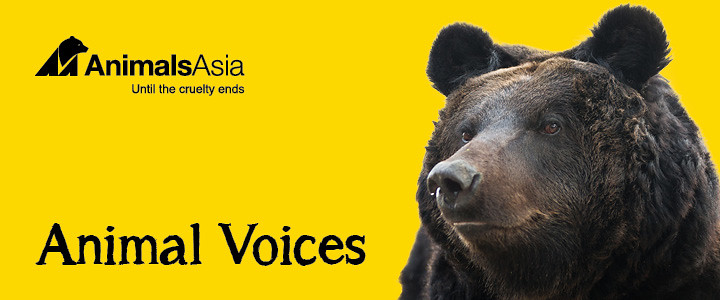TAKE ACTION: TripAdvisor’s animal welfare policy is failing and animals are suffering
21 February 2018
The public can’t be expected to be experts. TripAdvisor – just like any other travel agent – must be responsible for the content on its own site.
By Animals Asia Animal Welfare Director Dave Neale
When most people are planning a holiday, they use the internet and on the internet, all roads lead to TripAdvisor. It is the world’s biggest travel website boasting an astonishing 455 million users per month.
But TripAdvisor has a very big problem. The company has set out its animal welfare policy which unequivocally declares activities which harm the welfare of animals, or which promote hands on contact with wild animals, to be unethical.
Yet, at the very same time, it is one of the biggest enablers of animal cruelty in the world.
In 2016, TripAdvisor announced they would no longer sell tickets for activities which they believe harm the welfare of animals. That sounds like a big deal – and it does have importance – but let’s not lose sight of the fact that this move merely brings TripAdvisor into line with every other responsible travel agent in the market.
The difference, however, is that TripAdvisor doesn’t go nearly far enough to protect animals around the world from tourism-based cruelty.
You see, while TripAdvisor no longer sells tickets for these facilities, it still allows them to list on their site.
If you want to swim with dolphins captured from the wild and kept in tiny pools, you can find an operator on TripAdvisor. If you’d like to take a selfie of yourself with wild animals such as vulnerable baby bears or drugged tigers, TripAdvisor will tell you how.
To me, this is utterly wrong and completely at odds with the values TripAdvisor claims to hold.
In defence of their stance, TripAdvisor contends customer reviews will reveal which facilities are cruel or unethical and act as a warning to other travellers. But even five minutes of research on the site reveals this to be false.
Take Thailand’s notorious Tiger Temple as an example. This is a facility which has been closed down by the authorities for wildlife crimes. Tigers were being illegally trafficked, baby tigers were found in jars of liquor while adult tigers were slaughtered for consumption.

So how are its TripAdvisor reviews? Shockingly, they are 75% positive.
There are countless other examples proving the public simply cannot be expected to police these nefarious activities. It has to be TripAdvisor’s responsibility to police their own site.
Rather than acting as a deterrent, the weight of positive reviews are actually muddying the waters and encouraging people to take part in activities which harm animals.
Take sun bear cub Marsha and her mother Ajib. This sun bear family is forced to pose for selfies at a facility in Bali, Indonesia. In one 5-star review titled, “literally the best experience of my life”, the user claims, “seeing the experiences other people had here being able to feed, cuddle, play with and bathe the three gorgeous bears living here inspired me to book my own trip.”
In reality, the tourists are being fooled. When they visit, they see two placid animals in a large grassy enclosure and everything seems very nice. They don’t see the tiny concrete cell where Marsha and Ajib spend most of their time, they don’t see Marsha’s lost childhood or the tell-tale signs of stress such as chronic paw sucking.
Constant contact with humans is stressful for adult bears and entirely unnatural for cubs. Treating these wild animals like human children sends a completely false message to visitors about both their natural behaviours and their welfare needs.
This is a huge problem and it is making the work of animal welfare organisations such as Animals Asia increasingly difficult.
While a reputable travel agent would not inform its customers of activities it believes are unethical – such as elephant rides or wild animal selfies – TripAdvisor remains a key advertising channel for similar facilities around the world.
And while TripAdvisor fails to invest resources in policing their own site, the simple message of what constitutes animal cruelty, of what conditions and activities damage animal welfare and of which animal behaviours are natural, is being drowned out.
TripAdvisor’s policy of letting the reviews decide what is ethical allows facilities exploiting animals to continue to profit from suffering and enables tourists to justify their “once in a lifetime” experience.
But for thousands of both captive and wild animals, the cycle of suffering and violence continues. TripAdvisor is an incredible position; they have the ability to do more to end animal cruelty than almost any other company on the planet. They just need the will.
How you can help:
Stop sun bear family Marsha and Ajib being abused for selfies
Tell UNESCO to end their cruel monkey circus
Ask TripAdvisor to do more and remove facilities which are cruel to animals
BACK





